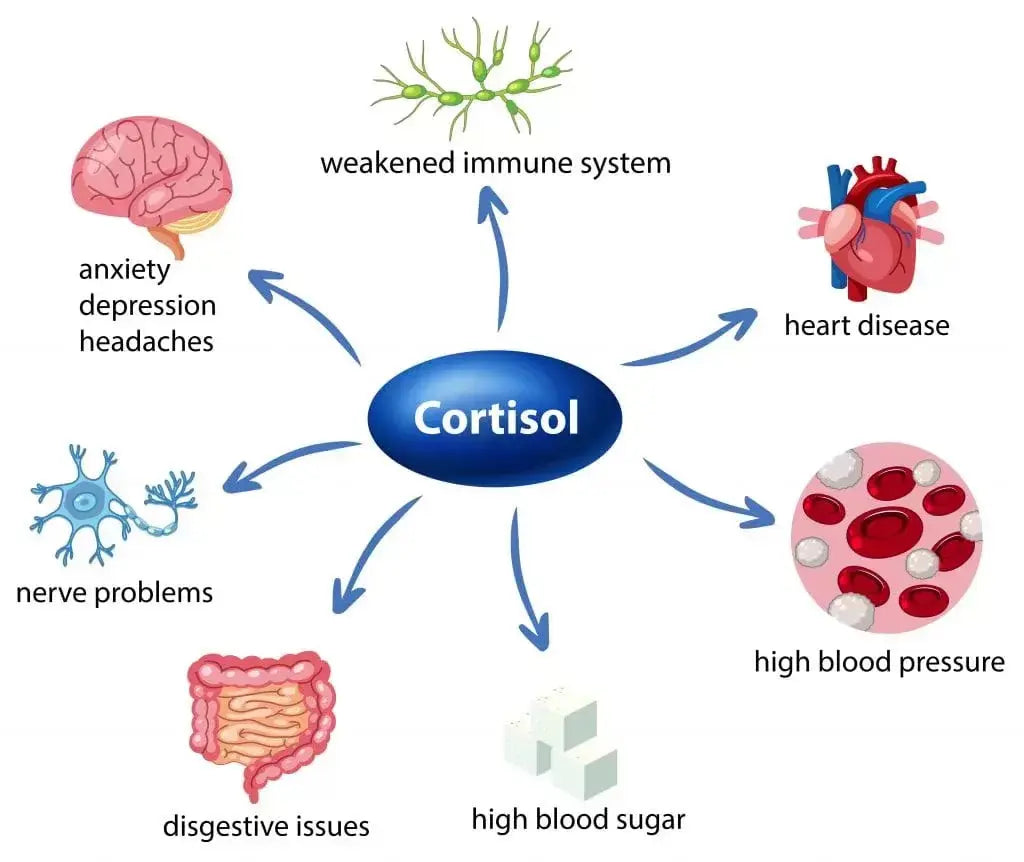Introduction
Prediabetes is influenced not only by diet and exercise but also by sleep quality, stress levels, and cortisol production. Understanding the interplay between these factors is crucial for managing and potentially reversing prediabetes. This article explores the connections between sleep, stress, cortisol, and prediabetes, and how addressing these issues can lead to better metabolic health.
Main Content
The Impact of Sleep on Prediabetes
Sleep quality and duration have a significant effect on blood sugar regulation and insulin sensitivity.
- Sleep and Blood Sugar Levels: Poor sleep can lead to elevated blood sugar levels and impaired glucose tolerance. Studies have shown that even partial sleep deprivation can increase insulin resistance.
- Sleep Duration: Both short sleep (less than 6 hours per night) and long sleep (more than 9 hours per night) are associated with an increased risk of developing prediabetes and type 2 diabetes.
The Role of Stress and Cortisol
Chronic stress is a major contributor to metabolic dysfunction and can exacerbate prediabetes.
- Cortisol and Blood Sugar: Cortisol, known as the stress hormone, plays a crucial role in blood sugar regulation. Chronic stress leads to prolonged cortisol release, which can increase blood sugar levels and promote insulin resistance.
- Stress Response: Acute stress triggers the release of cortisol and adrenaline, preparing the body for a 'fight or flight' response. This increases blood sugar levels to provide immediate energy. However, chronic stress keeps blood sugar levels elevated, leading to metabolic imbalances.
Insights and Solutions
Improving Sleep Quality
Enhancing sleep quality is essential for better metabolic health and managing prediabetes.
- Sleep Hygiene: Establish a regular sleep schedule, create a comfortable sleep environment, and avoid stimulants like caffeine and electronics before bedtime.
- Mindfulness Practices: Techniques such as meditation, deep breathing, and progressive muscle relaxation can improve sleep quality and reduce stress.
Managing Stress
Effective stress management can lower cortisol levels and improve blood sugar regulation.
- Mindfulness and Relaxation: Practices such as yoga, meditation, and mindfulness can help reduce stress and cortisol levels, leading to better blood sugar control.
- Physical Activity: Regular exercise is a natural stress reliever. It reduces cortisol levels, improves mood, and enhances insulin sensitivity.
Monitoring and Insights
Understanding the relationship between stress, sleep, and blood sugar can be achieved through continuous monitoring and personalized feedback.
- Wearable Devices: Devices that track sleep patterns, stress levels, and blood sugar can provide insights into how these factors interact and affect metabolic health.
- Personalized Feedback: Using data from wearable devices, individuals can receive tailored recommendations to optimize sleep, manage stress, and improve overall metabolic health.
Practical Steps to Address Sleep and Stress
- Establish a Routine: Create a consistent daily routine that includes regular sleep and wake times, balanced meals, and scheduled relaxation periods.
- Stress Reduction Techniques: Incorporate stress-reducing activities into your daily life, such as taking short walks, practicing mindfulness, or engaging in hobbies that bring joy and relaxation.
- Healthy Lifestyle Choices: Maintain a healthy diet and regular exercise routine to support overall well-being and metabolic health.
Conclusion
Sleep quality, stress levels, and cortisol production are critical factors in managing prediabetes. By understanding and addressing these elements, individuals can significantly improve their metabolic health and reduce the risk of developing type 2 diabetes. Implementing practical steps to enhance sleep, manage stress, and monitor their effects can lead to better health outcomes and a more balanced life.
Key References
- Sinclair, D. (2019). "Lifespan: Why We Age—and Why We Don't Have To." Atria Books.
- Centers for Disease Control and Prevention. "Prediabetes – Your Chance to Prevent Type 2 Diabetes." CDC, 2023.
- American Diabetes Association. "Standards of Medical Care in Diabetes—2024." Diabetes Care, 2024.
- National Institutes of Health. "Diabetes Prevention Program (DPP)." NIH, 2023.
- Fung, J. (2018). "The Diabetes Code: Prevent and Reverse Type 2 Diabetes Naturally." Greystone Books.






